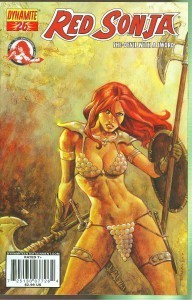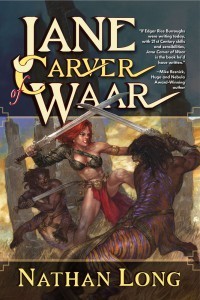No More Heroines
If you’re familiar with my work, you should immediately know I mean the word heroine, not the concept of the female protagonist. I’ve written one fantasy novel (The Hum and the Shiver) and a series of short stories (The Firefly Witch) with strong, tough female main characters, and I try to make the women in my Eddie LaCrosse series the equal of that hero; in fact, I hope to take Eddie’s sidekick from Wake of the Bloody Angel, Jane Argo, and make her the hero of her own novel one day.
And that’s the word I like to use. “Hero” should be a genderless term.
If the story has a main character, that’s the protagonist. He or she can be weak, sniveling, backstabbing or dishonest, and still remain the protagonist. But to be a story’s hero, you need to be more. S/he strives to make him/herself and the world better; s/he faces his/her darkest fears and pushes past them. S/he can still fail–look at both To Kill a Mockingbird’s Atticus Finch and Morgan from The Mists of Avalon–because it’s the striving that makes a character heroic.
Fantasy lends itself to heroes; in fact, there’s a subgenre called “heroic fantasy,” in which I proudly place Eddie LaCrosse (and I was tickled to have an Eddie story in volume 2 of the anthology series, The New Hero). But there’s nothing that requires that hero to be male, despite the cliche images associated with it. Sure, Conan is the first name that comes to mind when someone says “heroic fantasy,” but the Conan stories were written nearly a century ago. When he was adapted by Marvel Comics in the seventies, the creators knew that times had changed, took a minor character from an unrelated Robert E. Howard story, and created his female opposite, Red Sonja (whose latest comic incarnation will be written by Gail Simone).
And today, female heroes are everywhere. I’m part of the Facebook group The Heroic Fiction League, and female heroes are thick on the ground there, whether written by women (Violette Malan, who has her own take on this issue here) or men (Nathan Long even has his own Jane, Jane Carver of Waar).
And yes, these are heroes, not “heroines.” They don’t need their own, gender-specific term, because their gender is irrelevant. What matters is their strength of character, not their strength of their (literal or metaphorical) sword arm. As Jodie Foster says in the DVD commentary track on The Silence of the Lambs, ”I think there’s something very important about having a woman hero, who’s a true woman hero in the most archetypal sense of the word, and yet doesn’t have to clothe herself in men’s clothing. She doesn’t kill the dragon by being mightier, she actually does it because of her instincts, because of her brain, and because somehow she’s seen something, some detail, that other people have missed.”
So I vote we abandon the term “heroine” and start calling everyone who deserves it, male or female, a “hero.” Who’s with me?





